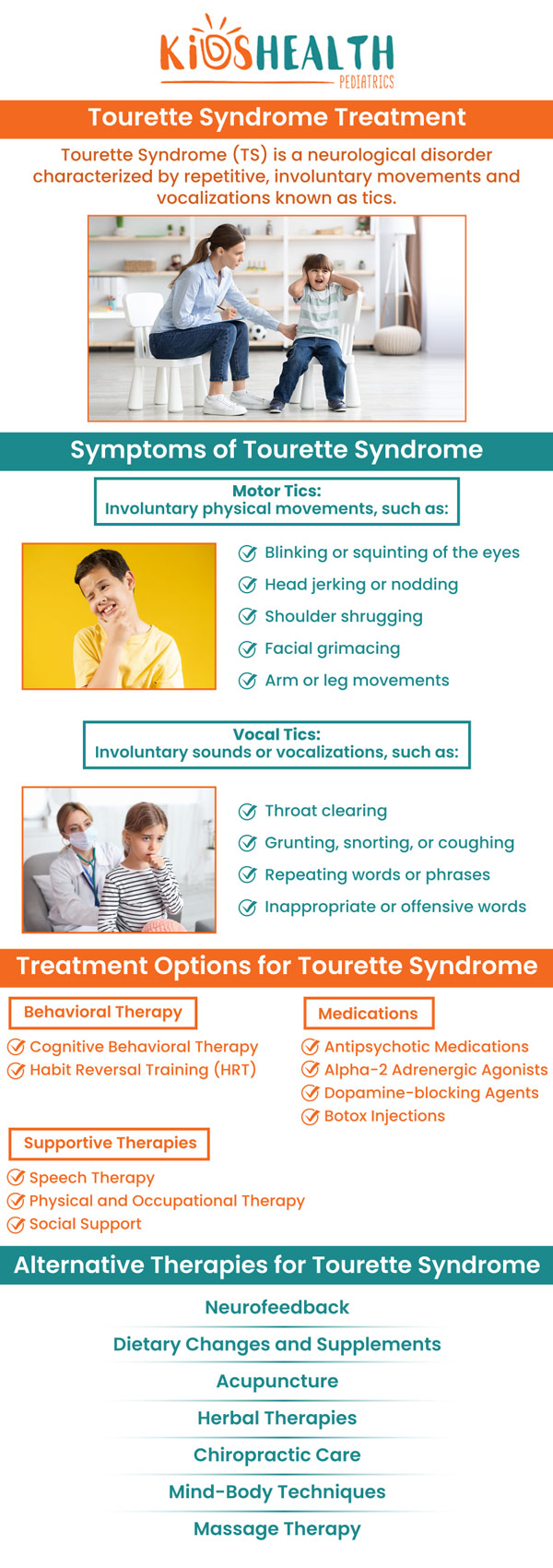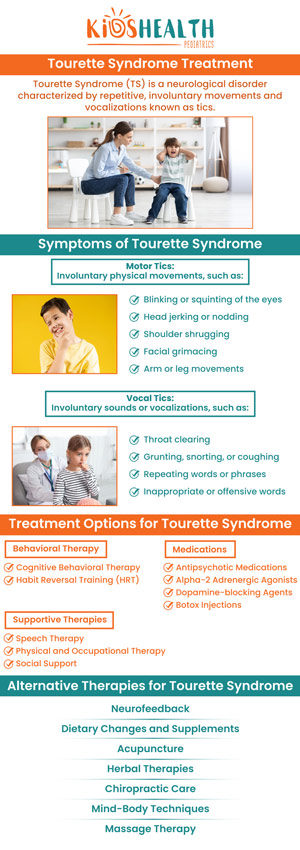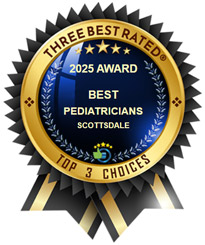Tourette Syndrome Treatment Specialist in Scottsdale, and Glendale AZ
Tourette syndrome (TS) is a neurological condition characterized by abrupt, uncontrollable, rapid, repetitive movements or vocalizations known as tics. Dr. Maria Nabong offers Tourette Syndrome treatment at Kidshealth Pediatric. Reach out to talk to one of our friendly and experienced staff members today or book an appointment online. We Have 2 Pediatric Clinics in Scottsdale, AZ & Glendale, AZ.




Table of Contents:
What is Tourette syndrome?
What is the most common first symptom of Tourette syndrome?
Can a child suddenly develop tics?
What are the treatment options available for Tourette syndrome?
Tourette syndrome affects the nervous system and causes sudden movements, twitches, or sounds. These behaviors are known as “tics,” which is why Tourette syndrome is categorized as a tic disorder.
Tics caused by Tourette syndrome occur unwillingly, meaning the person has no control over them and cannot stop themselves from performing these behaviors. For example, a person with Tourette syndrome may blink repeatedly or make noises involuntarily. Tics can be sudden, fast, short, or occur in clusters. They may also occur intermittently, disappearing for weeks or months at a time.
In a way, tics can be compared to hiccups; when you have the hiccups, you often want to stop them, but your body does it anyway. This is the same with tics; people may try to stop themselves from doing a certain tic, but it is hard to control. Tics typically emerge in childhood, usually between the ages of 5 and 10, and often persist into adulthood. However, the condition can emerge in infants, teens, and adults as well.
The main symptoms of Tourette syndrome are tics, which differ from person to person. Commonly, the first symptoms that occur are motor tics in the head and neck. This includes head jerking, facial grimacing, and twisting the neck.
It’s important to understand that tics vary in frequency, intensity, and duration and may change over time. Tics can be categorized as vocal or motor. While motor tics cause body movements, vocal tics include yelling a specific word or phrase, chronic humming, or clearing the throat.
In addition, some tics are simple, while others are complex. Examples of simple tics include blinking or humming. On the other hand, a complex tic often has a pattern that involves several parts of the body. For example, performing a sequence of hand movements, such as tapping fingers on a surface, followed by nodding the head while simultaneously blinking rapidly, is a complex tic.
A Tourette syndrome diagnosis is established once the child has exhibited motor and vocal tics for at least a year. The specialist will perform a thorough assessment to determine whether tics are caused by provisional tic disorder, Tourette syndrome, or another condition.
Yes, it’s not uncommon for children to suddenly develop tics. About 20% of children have experienced motor tics at some point, many of which resolve on their own without the need for treatment. Chronic tics can occur due to Tourette syndrome, autism spectrum disorder (ASD), obsessive-compulsive disorder (OCD), and attention-deficit hyperactivity disorder (ADHD). In addition, children have different triggers that can result in tics. Common triggers include boredom, stress, tiredness, and excitement.
If you suddenly notice tics in your child, you should keep track of their intensity, frequency, and other characteristics to relay to your child’s pediatrician. As many tics are transient, the doctor will likely recommend a monitoring approach to determine whether the concern will resolve on its own.
If your child is diagnosed with Tourette syndrome, the pediatrician will discuss the recommended course of treatment. In many cases, when the tics are not severe and do not interfere with daily life excessively, treatment may not be necessary. The doctor will provide you with resources to understand the condition better and be informed on how to manage tic episodes when they occur.
If your child’s tics are impacting their life, therapy, medication, or a combination of the two approaches will be recommended. ADHD medications, central adrenergic inhibitors, antidepressants, and antiseizure medications can be used to reduce symptoms of Tourette syndrome. In addition, psychotherapy is commonly recommended to address accompanying problems, such as obsessions or anxiety, and focus on habit-reversal training.
The experts at KidsHealth Pediatrics offer assessments, comprehensive care, and support for youth with Tourette syndrome. If you’ve noticed chronic tics in your child, schedule a visit at our pediatric clinic in Scottsdale or Glendale, Arizona. We have 2 pediatric clinics in Scottsdale, and Glendale, AZ. We serve patients from Glendale AZ, Peoria AZ, Sun City AZ, Scottsdale AZ, North Scottsdale AZ, Grayhawk AZ, and surrounding areas of Phoenix AZ.

Additional Services You May Need

Additional Services You May Need









